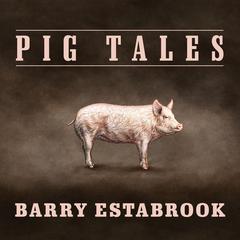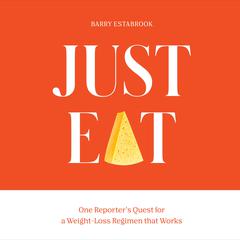 Play Audiobook Sample
Play Audiobook Sample
Tomatoland: How Modern Industrial Agriculture Destroyed Our Most Alluring Fruit Audiobook
 Play Audiobook Sample
Play Audiobook Sample
Quick Stats About this Audiobook
Total Audiobook Chapters:
Longest Chapter Length:
Shortest Chapter Length:
Average Chapter Length:
Audiobooks by this Author:
Publisher Description
Supermarket produce sections bulging with a year-round supply of perfectly round, bright red-orange tomatoes have become all but a national birthright. But in Tomatoland, which is based on his James Beard Award–winning article, "The Price of Tomatoes," investigative food journalist Barry Estabrook reveals the huge human and environmental cost of the $5 billion fresh tomato industry. Fields are sprayed with more than one hundred different herbicides and pesticides. Tomatoes are picked hard and green and artificially gassed until their skins acquire a marketable hue. Modern plant breeding has tripled yields, but has also produced fruits with dramatically reduced amounts of calcium, vitamin A, and vitamin C, and tomatoes that have fourteen times more sodium than the tomatoes our parents enjoyed. The relentless drive for low costs has fostered a thriving modern-day slave trade in the United States. How have we come to this point?
Estabrook traces the supermarket tomato from its birthplace in the deserts of Peru to the impoverished town of Immokalee, Florida, a.k.a. the tomato capital of the United States. He visits the laboratories of seedsmen trying to develop varieties that can withstand the rigors of agribusiness and still taste like a garden tomato, and then moves on to commercial growers who operate on tens of thousands of acres, and eventually to a hillside field in Pennsylvania, where he meets an obsessed farmer who produces delectable tomatoes for the nation's top restaurants.
Throughout Tomatoland, Estabrook presents a who's who cast of characters in the tomato industry: the avuncular octogenarian whose conglomerate grows one out of every eight tomatoes eaten in the United States; the ex-Marine who heads the group that dictates the size, color, and shape of every tomato shipped out of Florida; the U.S. attorney who has doggedly prosecuted human traffickers for the past decade; and the Guatemalan peasant who came north to earn money for his parents' medical bills and found himself enslaved for two years.
Tomatoland reads like a suspenseful whodunit as well as an exposé of today's agribusiness systems and the price we pay as a society when we take taste and thought out of our food purchases.
Download and start listening now!
"This book documents the human and environmental price we pay to have tomatoes available year round. The treatment of migrant workers by the big growers in Florida is shocking. "
— Kitty (4 out of 5 stars)
Quotes
-
“[A] thought-provoking book.”
— Publishers Weekly -
“If you have ever eaten a tomato—or ever plan to—you must read Tomatoland. It will change the way you think about America’s most popular ‘vegetable.’ More importantly, it will give you new insight into the way America farms.”
— Ruth Reichl, food writer and co-producer of PBS’s Gourmet’s Diary of a Foodie -
[A] thought-provoking book.
— Publishers Weekly
Tomatoland Listener Reviews
-
" Everyone should read this book. It's short and informative. Excellent! "
— Liesl, 10/28/2011 -
" This book paints a bleak picture of the winter tomato industry: pesticides, corruption, slavery... It's not the best written book, but it is eye opening.<br/> "
— Kili, 10/11/2011 -
" This book covered quite a bit of history of the tomato in a short amount of time. It was a quick enjoyable read, though not an all time favorite. "
— Brittany, 10/5/2011 -
" Disturbing yet fascinating story of the plight of tomato field workers in FL today "
— Al, 9/8/2011
About Barry Estabrook
Barry Estabrook, a James Beard Award–winning journalist, was a contributing editor at Gourmet magazine for eight years, writing investigative articles about where food comes from. He was the founding editor of Eating Well magazine and has written for the New York Times Magazine, Reader’s Digest, Men’s Health, Audubon, and the Washington Post. He is also a regular contributor to the Atlantic Monthly’s website. His work has been anthologized in the Best American Food Writing series, and he has been interviewed on numerous television and radio shows. Estabrook lives and grows tomatoes in his garden in Vermont.
About Pete Larkin
Pete Larkin has narrated dozens of audiobook titles, won five Earphones Awards, and been a finalist in 2012 for the prestigious Audie Award for best narration. He has been praised for his expert ability to speak in multiple accents. He is also an on-camera host and accomplished voice-over artist for hundreds of commercials and promos for a variety of companies, corporations, and governmental agencies. He was the public address announcer for the New York Mets and has worked as a radio jockey in New York, Baltimore, and Washington, DC.





